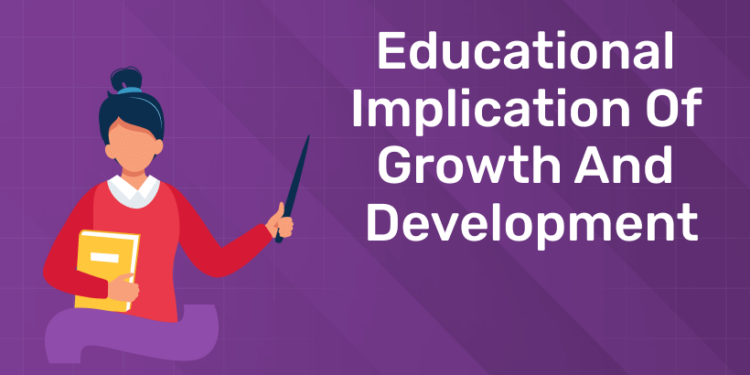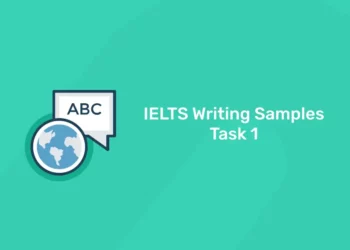Table of Contents
Montessori education has a profound impact on the development of preschool children, shaping their minds and fostering a lifelong love of learning. At the heart of this approach is a belief in children’s innate curiosity and ability to learn independently. At Montessori preschools in Texas, children are encouraged to explore, discover and interact with their environment at their own pace. Carefully selected Montessori materials play a central role in this developmental journey.
From sensory activities that improve fine and gross motor skills to practical everyday life exercises that promote independence, each element is carefully designed to address specific aspects of a child’s development. Through hands-on experiences, children not only acquire academic knowledge but also develop essential life skills such as problem solving, concentration and social interaction.
One of the hallmarks of Montessori education is the diversity of ages, allowing younger children, including preschoolers and kindergarteners, to learn from older children and vice versa. This fosters a sense of community, empathy and cooperation, which foster emotional intelligence in addition to academic success.
In addition, the emphasis on respecting children’s individuality contributes to the development of strong self-esteem and self-confidence. As children go through their learning journey, they become more resilient, adaptable and able to take ownership of their own learning.
Montessori education goes beyond traditional academic stages. It creates an environment that fosters the holistic development of the child, laying the foundation for a lifelong love of learning and a well-rounded and capable individual.
Register for the Entri Elevate Montessori Teacher Training Program! Click here to join!
Holistic Development: Beyond the Classroom
Montessori education goes beyond mere academic excellence; it aims to develop the whole child. Social, emotional, cognitive, and physical development are prioritized, providing a solid foundation for life. Montessori schools adhere to this principle rigorously, with curriculums explicitly designed to cultivate every aspect of a child’s personality, earning them a reputation as some of the best Montessori preschools in the Houston area.
Enhanced Social Skills: Building Community from Early Years
In traditional education systems, children of the same age are often grouped together. Montessori breaks this norm by encouraging mixed classrooms, where young people learn from their elders and where older people develop a sense of responsibility and empathy. This social interaction extends beyond the classroom into real-world settings, preparing your child for the various social situations they will encounter throughout their lives.
Cognitive Advancements: The ‘Follow the Child’ Philosophy
What really sets inner-city Montessori schools apart is the “follow the child” principle, deeply rooted in the Montessori method. This child-centered approach allows children to tap into their natural curiosity, creating an intrinsic love of learning that often lasts beyond the preschool years. It aligns with their cognitive developmental stages, preparing them for the academic challenges of the years ahead.
Independence and Self-Regulation: Freedom within Limits
Montessori education is also based on a culture of independence and self-regulation. From choosing activities to participating in daily chores, inner-city Montessori schools encourage children to take responsibility for their actions. The environment is carefully prepared to allow freedom within limits, a structured environment where children can safely explore, make decisions, and understand consequences.
Creativity and Innovation: The Little Scientists
Montessori education is also based on a culture of independence and self-regulation. From choosing activities to participating in daily chores, inner-city Montessori schools encourage children to take responsibility for their actions. The environment is carefully prepared to allow freedom within limits, a structured environment where children can safely explore, make decisions, and understand consequences.
What Are the 4 Planes of Child Development in Montessori?
The four planes of development are significant to consider when it comes to childhood education. They all represent the different stages a child goes through when developing crucial skills they will use in adulthood.
The First Plane
The first developmental plan lasts from birth to six years of age. During the first six years of a child’s life, children are especially good at absorbing new knowledge. Because of this ability, this plan was called the sensitive period of learning by Dr. Montessori. Although each child learns new skills at his or her own pace, the characteristics of this stage are related to the development of specific skills.
The child’s conscious mind is not yet awake during the first three years of life, allowing the child to explore the environment through the five senses. After the first three years of a child’s life, the child’s conscious mind awakens and he or she can learn by using his or her hands.
Typically, a Montessori school will take this into account and provide this age group with many hands-on activities. A sense of order marks the first six years of a child’s life. This order means that practical, methodical life lessons will appeal to children in the classroom, especially as they develop physical independence and often try to do many activities on their own.
The Second Plane
Children are in the second developmental plan from 6 to 12 years of age. One of the highlights of this developmental plan is the child’s desire to form peer groups as they look outward to understand the world. Children may even work with peers to complete activities.
Children at this stage will also begin to experience significant physical changes that make them appear clumsy. This awkwardness coincides with a child’s decreasing sense of order and cleanliness.
The child’s imagination becomes more evident during the second stage of development. As Montessori schools know, a number of learning opportunities arise from storytelling. Narration can occur outside of reading time on any topic – it can even involve puppets and other props.
During this stage, the child will begin to show an interest in gathering information about the world around them. During this period of increased interest, Montessori schools will begin to introduce children to subjects such as geography, science, and history in addition to language and math.
Moral justice becomes important during this stage of a child’s learning. He is concerned with the fairness of things and creates rules of the game that reflect this sense of fairness.
Register for the Entri Elevate Montessori Teacher Training Program! Click here to join!
The Third Plane
Between the ages of 12 and 18, children are in their third stage of development. During this stage, social connections are essential in the learning environment. Children will invest a lot of time and energy in relationships with their peers. Independence from adults is also important during this stage.
Children can explore this independence while remaining safe. Physically, children at this stage of development will sleep more than ever. They will also crave authentic, hands-on learning experiences. Children’s sense of morality and responsibility begins to be honed at this time.
The Fourth Plane
The fourth plane of development falls between the ages of 18 and 24. During this time, young adults will strive to achieve financial independence as they often live on their own for the first time.
At this stage, young people will try to find their place in society, whether through education or a career. Young people at this stage will begin to discover themselves as individuals and they will do so with the skills they learned in the first three stages of development.
How Montessori Education Encourages Child Development
1: What is the primary focus of the first plane of development in the Montessori method?
Montessori classrooms and educational programs are organized around four developmental plans rather than by year. This framework recognizes that children of different ages may have specific characteristics and needs that need to be considered in their daily education. Montessori schools are structured around these developmental plans, especially the first and second plans, to support students through dramatic developmental changes.
The First Plane
Montessori schools address the first developmental plan by maintaining small class sizes. Smaller class sizes allow children to receive more emotional nurturing and time to learn from cognitively stimulating activities. These activities often encourage crawling, walking, talking, and reading, which are essential skills that children learn at this age. These activities also often include directed movement, music, order, courtesy, social skills, and math.
The Second Plane
In the second level of development, children learn a lot by imitating the behavior of their teachers. Because the teacher acts as a role model, Montessori schools train their teachers to behave the way they want the children in their class to behave. For example, if the teacher wants the children to whisper, the children will whisper.
It is essential that children have strong moral role models in this area of development because they are also role models for social behavior. Montessori schools encourage all their teachers to live with integrity.
Register for the Entri Elevate Montessori Teacher Training Program! Click here to join!
Conclusion
Choosing an educational path for your child is an investment in their future. Montessori education, which focuses on holistic development, social skills, cognitive growth, independence, and creativity, provides a solid foundation.
Montessori School offers a golden opportunity for parents looking for the best Montessori preschool for their children. With experienced teachers, a diverse and inclusive community, state-of-the-art facilities, and a curriculum that goes beyond academics, Montessori School truly embodies what Montessori education can and should be.










